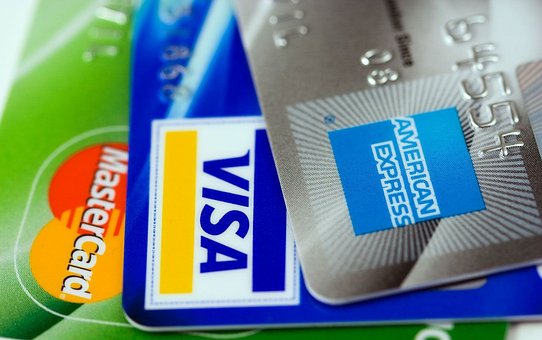Building Credit with a Credit Card: Tips and Tricks
Building credit with a credit card can be a tricky task, especially when it comes to determining whether or not it is considered halal or haram in Islamic finance.
One of the first things to consider when building credit with a credit card is to make sure that you are using it responsibly. This means only using it for necessary expenses and paying off the balance in full each month. This will help to avoid paying interest and late fees, which are considered haram in Islamic finance.
Another important tip is to make sure that you have a clear understanding of the terms and conditions of your credit card. This includes understanding the interest rate, annual fee, and any other fees associated with the card. It is also important to be aware of any rewards or cashback programs that may be offered.
In addition to being responsible with your credit card, it is also important to be consistent. This means making sure that you are using your credit card regularly and making payments on time. This will help to establish a positive credit history and will make it easier for you to get approved for loans and other financial products in the future.
Another important factor to consider when building credit with a credit card is to be mindful of your credit utilization ratio. This is the amount of credit that you are using compared to the amount of credit that you have available. It is recommended that you keep your credit utilization ratio at 30% or less. This means that if you have a credit limit of $1000, you should only be using $300 or less.
Finally, it is important to be aware of the impact that your credit score has on your financial well-being. A good credit score can make it easier for you to get approved for loans, credit cards, and other financial products. It can also help to lower your interest rates and fees. By following the tips and tricks outlined above, you can help to build a strong credit history and improve your credit score.
In conclusion, Building credit with a credit card is a halal process if done responsibly and with a proper understanding of the terms and conditions. It is important to use it responsibly, understand the terms and conditions, be consistent, be mindful of the credit utilization ratio and be aware of the impact of credit score on financial well-being. Following these tips and tricks can help you to build a strong credit history and improve your credit score.
Choosing a Credit Card for Travel: What to Look For
When it comes to choosing a credit card for travel, there are a few key factors to consider. One of the most important is the type of rewards or benefits that the card offers. Many travel credit cards offer rewards such as free flights, hotel stays, or even travel insurance. These rewards can be a great way to save money on your next vacation or business trip.
Another important factor to consider is the foreign transaction fee. Some credit cards charge a fee for transactions made outside of the country, which can add up quickly if you travel frequently. It is best to choose a card with no foreign transaction fee, or one that offers a low fee, to avoid paying extra charges.
You may also want to look for a credit card that offers purchase protection and travel accident insurance. These benefits can help to protect you in case of lost, stolen, or damaged items, or in case of an accident while traveling. Additionally, some credit cards offer emergency assistance services, such as emergency cash and card replacement, which can be very useful in case of emergency.
Finally, it is also important to consider the credit limit, APR, and other fees associated with the card. Some credit cards may offer a higher credit limit and lower APR, making it easier to manage your finances while traveling. It is important to read the terms and conditions carefully and understand any fees associated with the card, such as annual fees, late payment fees, etc.
In conclusion, Choosing a credit card for travel requires proper research and understanding. One should consider the type of rewards or benefits the card offers, foreign transaction fees, purchase protection, and travel accident insurance, credit limit, APR, and other fees associated with the card. It is important to read the terms and conditions carefully and understand any fees associated with the card, such as annual fees, late payment fees, etc. This will help you to make an informed decision and choose the best credit card for your travel needs.

